Reading comprehension Normal Rhyming Words Worksheets for Ages 3-7
6 filtered results
-
From - To
Discover our engaging and educational Reading Comprehension Normal Rhyming Words Worksheets, tailored specifically for children ages 3-7. At Kids Academy, we understand the critical importance of early literacy skills, which is why our worksheets use fun, rhyming words to help young learners enhance their reading comprehension abilities. These printable resources are designed to be both stimulating and enjoyable, making learning a delightful experience for preschoolers and early elementary students. Watch your child build a strong foundation in reading while having fun with these creative and effective rhyming exercises. Unlock a world of literacy and joy today!
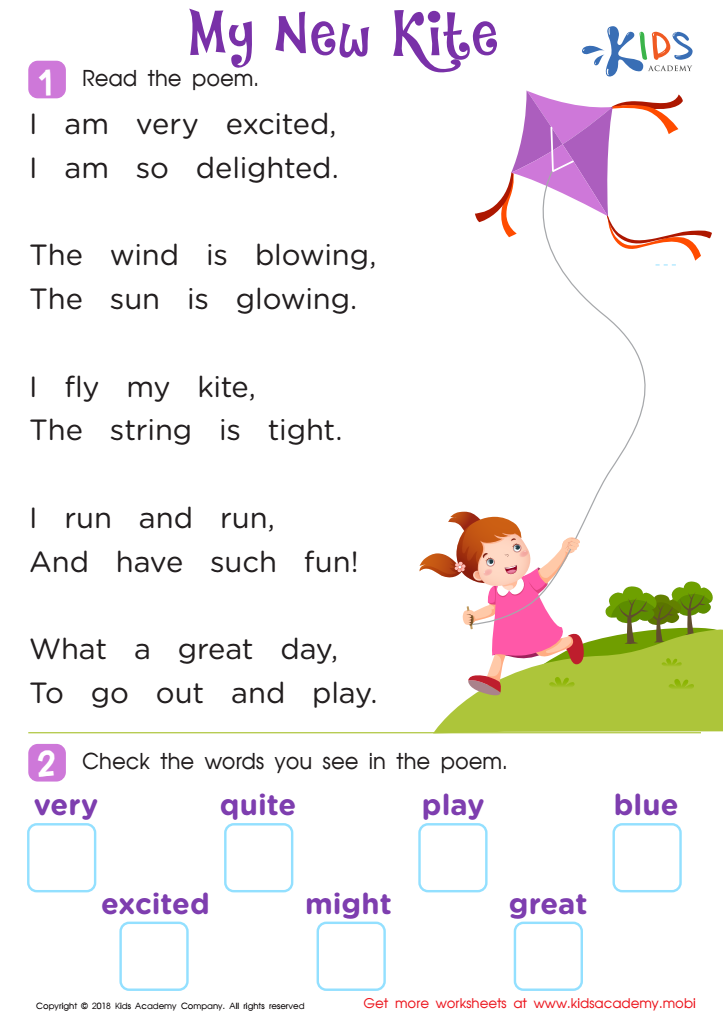

Poem: My New Kite Worksheet


Rhyming Words Rhyming Worksheet


First Words: Picture Rhymes Worksheet
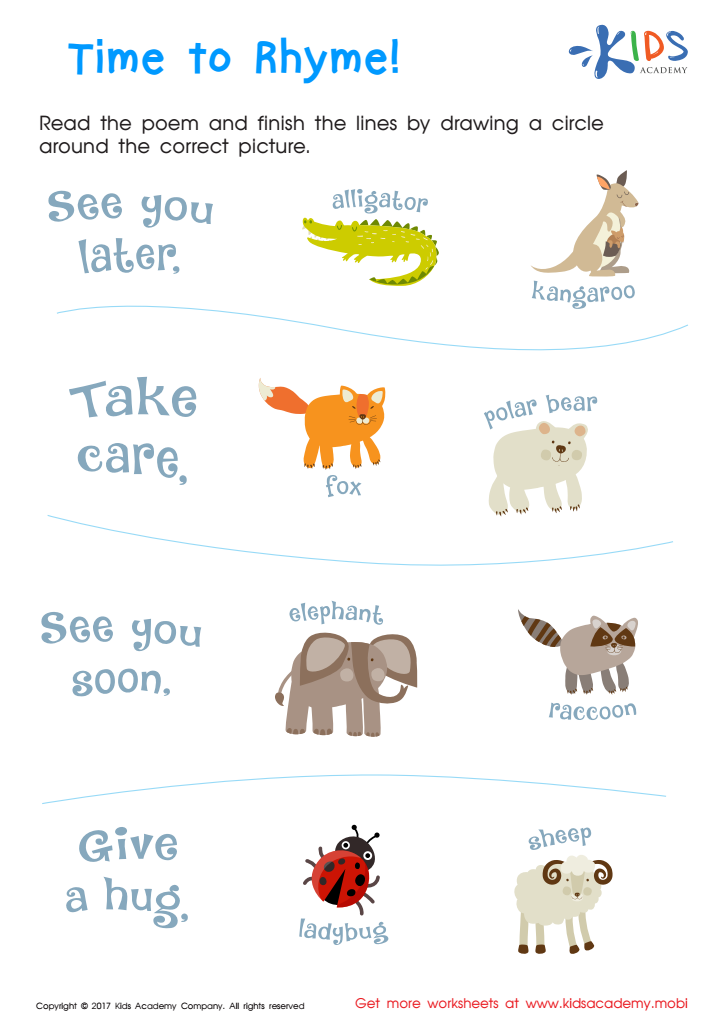

Time to Rhyme Rhyming Worksheet
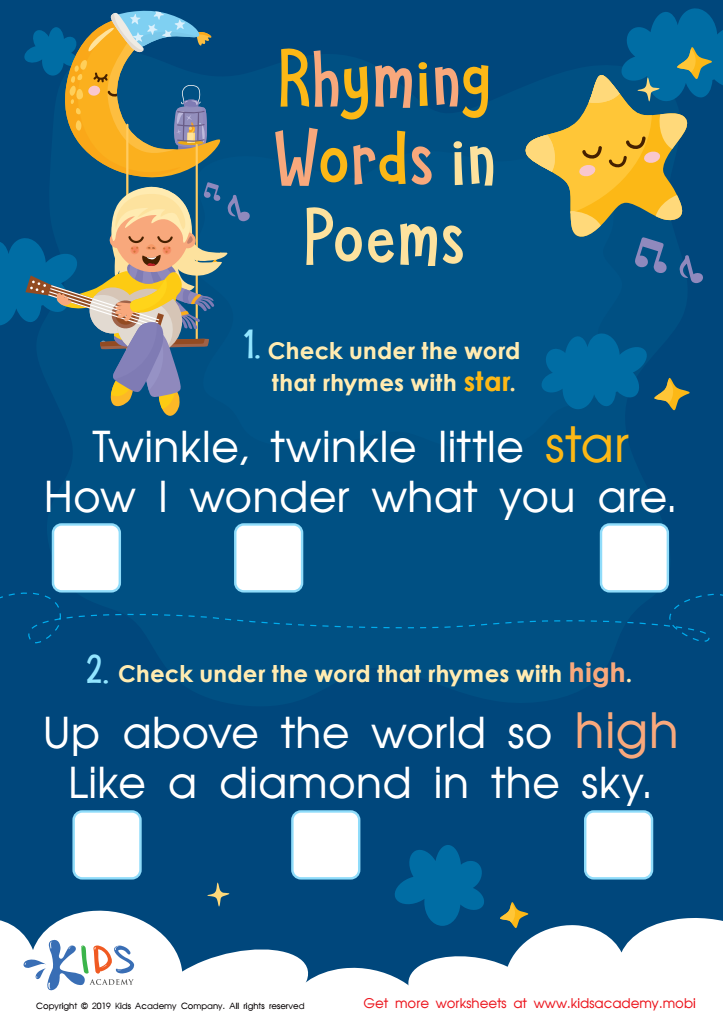

Rhyming Words in Poems Worksheet
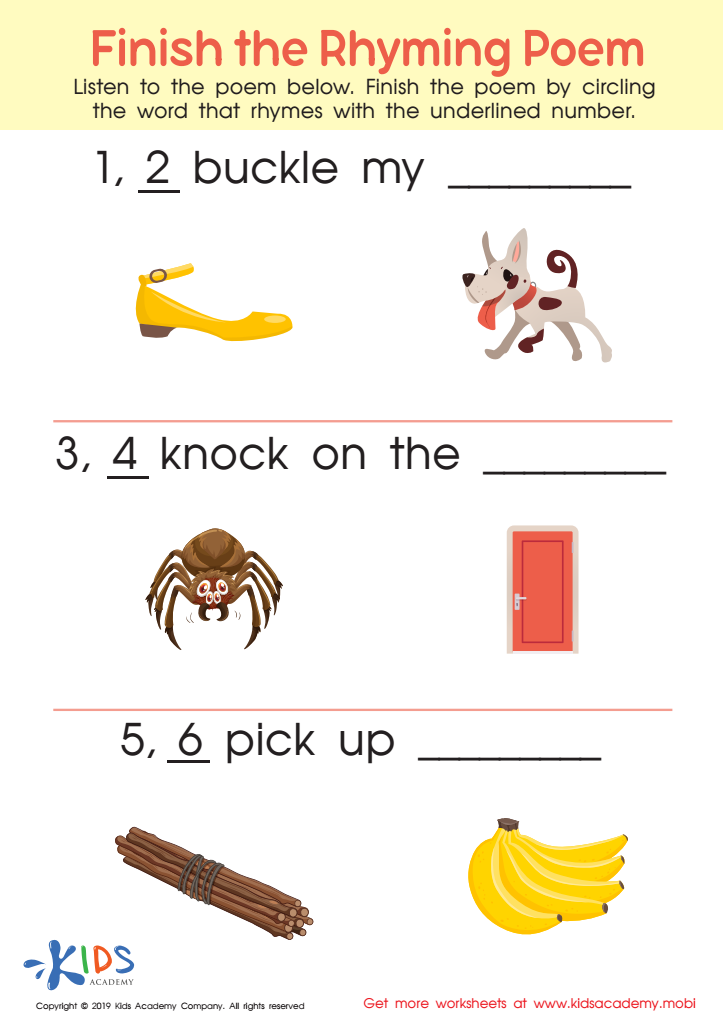

Finish Rhyming Poem Worksheet
Reading comprehension and familiarity with normal rhyming words play a crucial role in the early developmental stages of children aged 3-7. At this age, young minds are rapidly developing foundational language skills integral to their academic success and overall cognitive growth. Rhymes capture children's attention through repeated sound patterns and rhythmic qualities, making learning engaging and enjoyable. This fosters a love for reading and encourages early literacy habits, providing a strong groundwork for future education.
Understanding and recognizing rhyming words enhance phonemic awareness, which is the ability to hear and manipulate sounds in words. This skill is a cornerstone of early reading proficiency. Phonemic awareness helps children decode new words and increase their vocabulary, which directly contributes to better reading comprehension. When children understand what they read, they are more likely to develop critical thinking skills and perform well in various academic areas.
Moreover, involvement in activities incorporating rhymes and reading can strengthen parent-child and teacher-student bonds. Parents and teachers can observe progress and offer personalized support, addressing any difficulties early on. Encouraging reading comprehension and rhyming at this formative stage shapes confident, competent readers and learners, laying a vital foundation for a child's educational journey.
 Assign to My Students
Assign to My Students




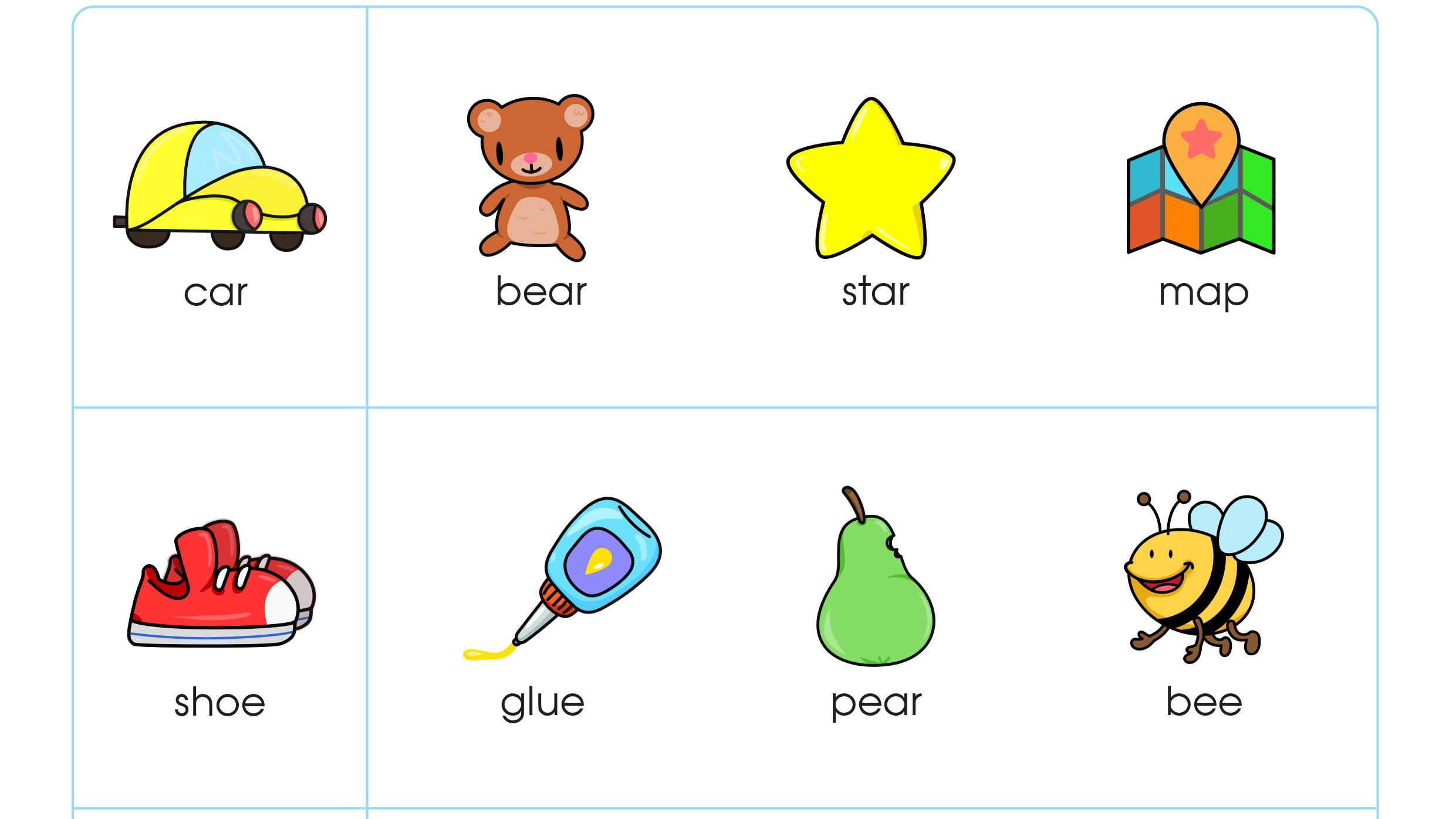

.jpg)








